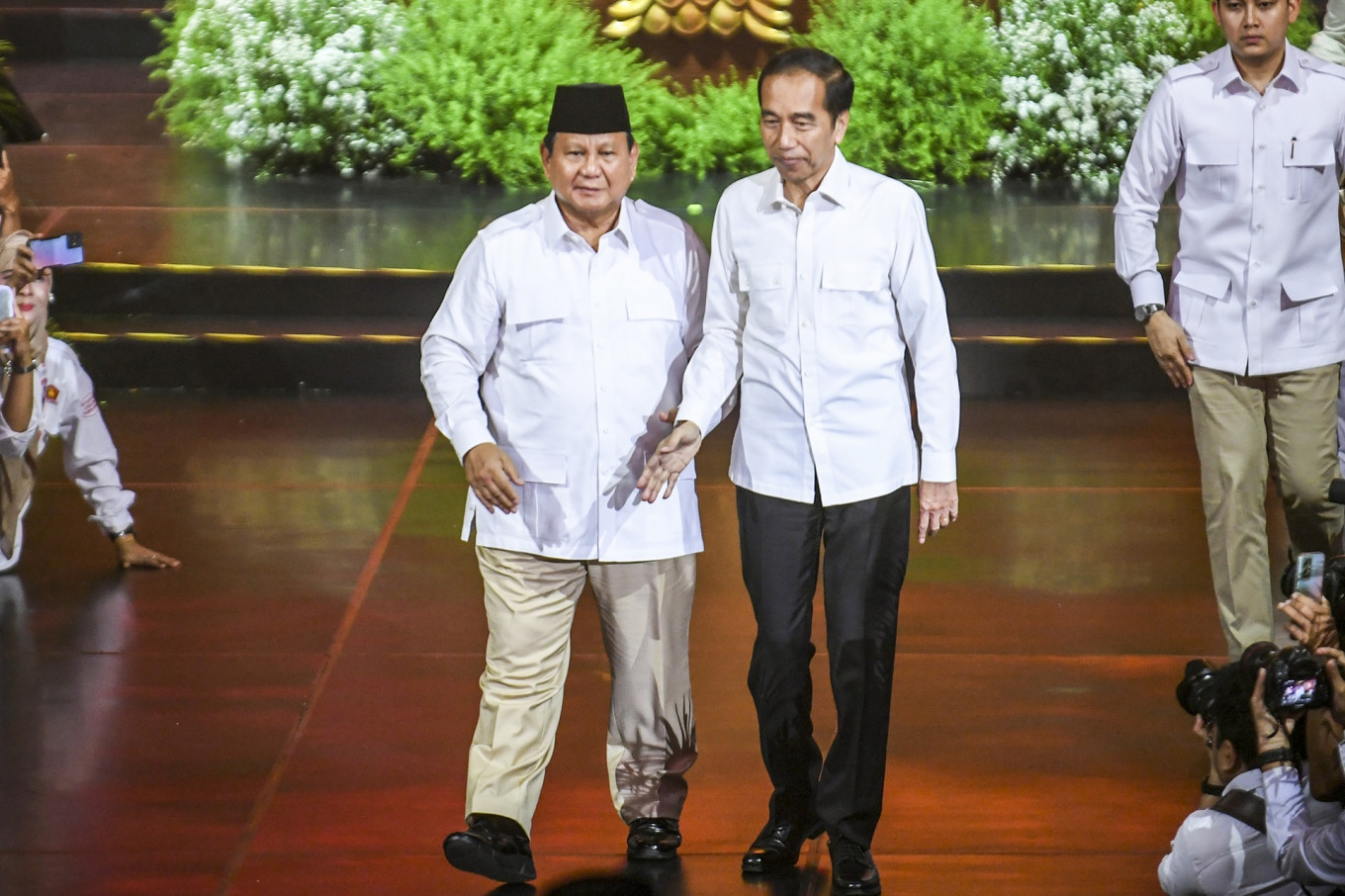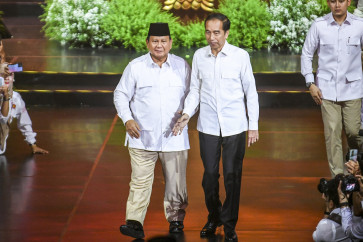Popular Reads
Top Results
Can't find what you're looking for?
View all search resultsPopular Reads
Top Results
Can't find what you're looking for?
View all search resultsPrabowo’s test of governing in Jokowi’s absence
Jokowi's influence may not be institutional, but it is politically alive as long as leaders like Prabowo continue to invoke his name.
Change text size
Gift Premium Articles
to Anyone
D
uring a recent speech, President Prabowo Subianto unexpectedly chanted “Hidup Jokowi!” (Long live Jokowi) three times, triggering debate across the nation. Was this a symbolic tribute to his predecessor Joko “Jokowi” Widodo? Or did it reveal an underlying difficulty in stepping out of Jokowi’s shadow?
Regardless of Prabowo’s intent, this moment was more than just political rhetoric—it was a demonstration of leadership communication, shaping public perception in real time.
Effective messaging is not just about what is said, but how it influences perception and defines leadership. A leader’s words can reassure, mobilize or divide a nation. But as Marshall McLuhan famously argued, "the medium is the message"—meaning that how a message is framed and delivered often holds more significance than its literal content. In this case. Prabowo’s chant was not just about the words themselves but about the political weight they carried.
In my work as a teacher of entrepreneurship and communication, I often emphasize the power of top-down communication, message clarity and the ability to deliver a pitch in 30 seconds. My students learn that the most effective leaders are not just those who make decisions but those who ensure their message is clearly received and understood.
Then, the stakes become clear: What happens when a leader repeatedly invokes his predecessor’s name? Is this a calculated strategy, or does it signal something deeper about power, governance and institutional resilience? Understanding this requires more than a political lens—it calls for a philosophical inquiry into how leadership, legitimacy and governance function in Indonesia.
To analyze this moment effectively, we must go beyond politics and consider its deeper implications. Words in politics are never just words—they shape reality, influence perception and reinforce societal values. Political communication is not just about what is said but about how it is understood, why it is said, and what values it reinforces.
This is where philosophy becomes useful. By applying three philosophical perspectives—ontology, epistemology and axiology—we can uncover the deeper significance of this event.


















